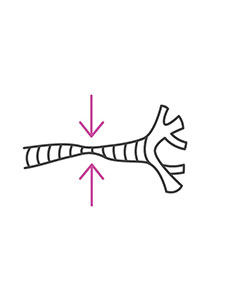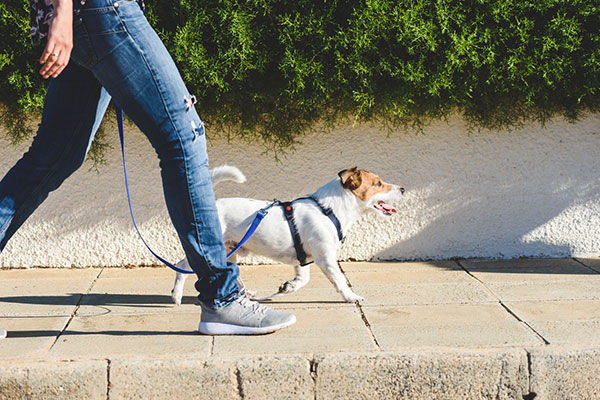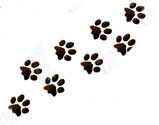This week’s blog is from Susan Aiello, DVM, ELS—veterinarian, editor, writer, dog-lover, and friend. We met in 2010 at a three-day writers’ conference in Boston where we were both members of the faculty.
The conference was attended by aspiring writers from across the country and beyond, and the faculty hailed from a multitude of states; Susan was living in Ohio at the time, and I lived in Rhode Island.
Every evening after the last workshop ended, many of the faculty would meet in the Oak Long Bar (we were all staying at the Fairmont Copley Plaza, a lovely old hotel in the Back Bay section of Boston), for a drink and bite to eat. Although the fare was superb, the biggest pleasure for all of us was hanging out with our “tribe”: fellow writers, editors, literary agents. Long-term friendships were formed and, when the annual conference was discontinued in 2020, the professional and personal connections that were born there continued.
Susan and I hit it off immediately, bonding over our love of words, books, teaching, and dogs. I also found her to be enormously funny, and still do.
Thanks, Susan, for enlightening us on an important topic.

PS
Interested in being a guest-blogger? Contact me.
Does Your Dog Honk?
Dogs can vocalize in many different ways. They bark, whine, growl, and howl. But honk? Are dogs trying to get in touch with their inner goose? Nope. Dogs that have a dry, honking cough often have a condition called collapsing trachea. Although any dog can develop collapsing trachea, it is much more common in small dogs, such as Yorkies, Chihuahuas, and miniature and toy Poodles. Drinking or eating can bring on an episode, and honking is often worse at night. The honk can also worsen and become more frequent when the weather is hot and humid, which makes breathing more difficult. Excitement can bring on the honk, too. And, in all cases, the honking is much worse when these little guys are overweight.

So, what is going on? When dogs breathe in through their nose or mouth, the trachea, also called the windpipe, carries the air to the lungs. The walls of the trachea contain rings of cartilage that give the trachea a firm structure and hold it open in its normal round shape. In collapsing trachea, these rings of cartilage become weak and flatten. This narrows the airway and impedes the airflow when your dog breathes in. The result is that a normal breath can turn into a honking cough, especially in hot and humid weather or when your dog is excited, playing, or running. Some dogs may retch trying to clear their throat of respiratory secretions.

The problem can start in young dogs but usually shows up in middle-aged or older dogs. Over time, the airways can become inflamed, making the honking worse and breathing even more difficult. If your dog starts making this weird honking noise, a trip to your veterinarian is in order. Taking a short video of your dog honking to show your vet can be very helpful. Your vet will rule out other conditions that cause coughing, including kennel cough (infectious tracheobronchitis), bronchitis, and even pneumonia. History and physical examination are important for diagnosis. Other diagnostic testing may include radiographs (x-rays), bloodwork, a tracheal wash, and bronchoscopy. A tracheal wash is done to collect a fluid sample from your dog’s lower respiratory tract for analysis. This procedure is short but does require anesthesia. Bronchoscopy also requires general anesthesia and involves a flexible endoscope being inserted into the trachea so that your vet can directly see the inside of the trachea and lower airways.
The good news is that mildly affected pups can often do well with a few lifestyle changes. First and most important is to keep your dog fit and trim. Many conditions, especially those affecting the heart, lungs, and joints, are exacerbated by excess weight. If your dog needs to drop some pounds, work with your veterinarian on developing an appropriate weight loss program, with gentle exercise and diet modification.

Second, swap out your dog’s collar for a harness to avoid pressure on the neck. You may want to remove the harness at night so your dog can sleep more comfortably.
Third, your vet may prescribe medications, such as sedatives and cough suppressants, to decrease the cough reflex. A short-term steroid may also be prescribed to knock down the inflammation in the airways.
Severe cases, fortunately, are uncommon. These dogs honk so much that they frequently go into respiratory distress, gasping for air, and specialty surgery may be considered. In this procedure, C-shaped stents are placed around the outside of the tracheal wall to reinforce it and hold the trachea open for better airflow. Your vet can provide you with a referral to a veterinary surgeon, who will determine whether your dog is a candidate for surgery and discuss risks, potential complications, and costs.

Susan E. Aiello, DVM, ELS, veterinarian and award-winning writing instructor, is CHIEF VETERINARY OFFICER for Pawdentify, a company dedicated to “keeping pets safe, plain and simple. An ID tag is the first line of defense when a pet gets lost and leads to the quickest return home.”
Dr. Aiello has many years of experience in veterinary and human medical communications, specializing in editorial services and writing training. She is a former Editor-in-Chief of The Merck Veterinary Manual, a Past President of the Board of Editors in the Life Sciences, and a Fellow of the American Medical Writers Association.
From 2010 to 2020, Susan served as a guest faculty member for the Harvard Medical School Continuing Medical Education course on Writing, Publishing, and Social Media for Healthcare Professionals. In her spare time, Susan loves to read, bowl, and play with animals of all species, especially her snorty pug, Moxie, and a mixed-breed mischief-maker who answers (sometimes) to Alfie.
You can learn more about Susan and connect with her on Facebook or LinkedIn.

My senior teacup Yorkie has a collapsing trachea that was diagnosed at age 9 by her veterinarian. She joined my family when her loving family had an unexpected change in plans.
Fortunately, my home is quiet. Her tracheal collapse is exasperated by travel. She doesn’t exhibit any breathing problems at home.
She takes a prescription oral medication (cough suppressant) daily, which maintains her breathing.
Thank you for elaborating on this topic, Susan. 😀🫶
#dogsarefamily 🐾💞🏡
Thanks, Lesley, for sharing your Yorkie’s experience with collapsing trachea. I’m glad to hear that her condition is being managed so well. Stay calm, and breathe!
Best, Dr. Susan